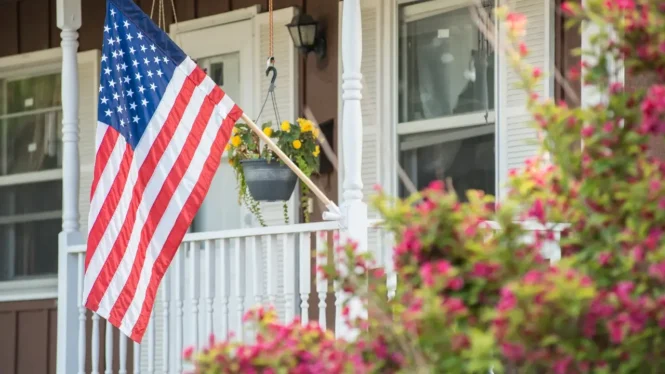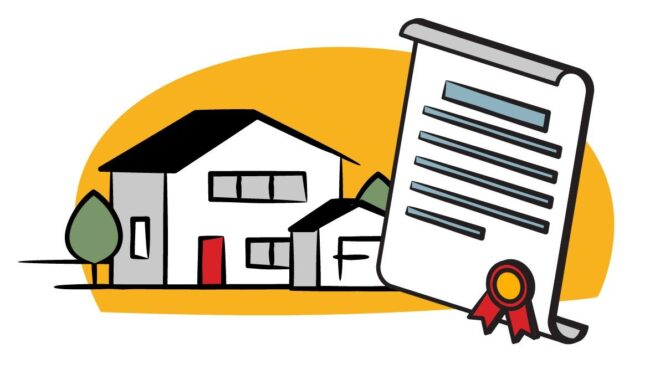Numerous American military personnel is frequently stationed or deployed abroad. Active-duty service people stationed abroad can now get a mortgage, whether it’s a VA loan or another kind, and buy a house while being far from their country of origin because of remote capabilities.
What exactly is a VA loan?
A VA loan is a mortgage for veterans, active-duty service personnel, and surviving spouses. Lenders connected to the US Veterans Affairs Department (VA) were responsible for the loan’s origination and funding. VA loans frequently have no loan limits, don’t require down payments, and don’t require mortgage insurance.
VA Home Loan Basics
Private lenders issue VA Loans, and since the United States Department of VA backs them, they are frequently made accessible with little or no down payment and without PMI. Data from the VA shows that since 1944, the VA has helped more than 25 million military members purchase houses under the VA loan mortgage program.
VA Loan Eligibility
You might be eligible for a VA loan. If you have served at least 90 days on active duty or have met a variety of other service criteria intended for Guard and Reserve personnel, the answer is generally “yes.”
Can you obtain a VA loan?

Even if you qualify for a conventional or another type of mortgage, a VA loan can help you buy a home at a low upfront cost, regardless of whether you, a family member, or a member of your household is on active duty or a veteran.
You should be aware that a VA loan requires a minimum of 90 consecutive days of service if you are currently enlisting in the military. In that case, you are able to apply for the Certificate of Eligibility (COE), which is necessary for you to obtain the loan. To finish this while on active duty, you need your commander, adjutant, or personnel officer to sign a statement of service. Once you have this declaration of service, you can apply for your COE using the eBenefits portal.
Why purchase a property while serving abroad?
Being in the military may require you to move as needed, usually with little advance warning. If you are currently renting or a homeowner who needs more room, you can still buy a home even if you are deployed. Among the advantages of buying a home are:
- Rentals do not require a lease.
- Family harmony, particularly for small children
- Possible tax benefits
What factors should I consider while buying a house abroad?

You won’t have the opportunity to visit a property in person if you (or a member of the family) are thinking about buying a house. You can enlist the assistance of your partner, other relatives, or a realtor. You might even be able to create your own 3D tour or video tour.
You’ll need guidance with the mortgage application procedure in addition to house hunting. Take note of these three points:
1. The granting of a power of attorney
You can designate someone to represent your interests in the purchase of a home while you are away with a power of attorney (POA). For granting a POA, you will need the assistance of a lawyer, or Judge Advocate General (JAG). Any of these professionals might also advise taking extra-legal activities, depending on your specific situation.
Military spouses frequently grant their spouses a POA so that the spouse can act on their behalf when necessary, such as signing documents. When selecting your nominees, keep the following questions in mind:
- Which authority will you give them access to?
- Do you want to put limitations in place?
- How long is a POA good for?
- Can POA be terminated at any time?
- Do you have a fallback strategy?
You should also ask the closing or title agent what POA documentation is necessary to close your mortgage.
2. Completing the prerequisites for occupancy

VA financing stipulates that the borrower must dwell in the property, which can be challenging if you are deployed.
Borrowers typically have a “reasonable interval” to move in after a VA loan closes. If you can demonstrate that you will be residing in the property by a specific date within a year of the closing, it may be possible to extend the term “reasonable,” which is generally defined as 60 days. If you are on active service and unable to fulfill the “reasonable” standard, a spouse or a dependent child may dwell in the house to satisfy this occupancy requirement.
However, you already meet the occupancy criterion if you are deployed. In line with VA:
“Single or married military troops are considered to be in a temporary duty status and capable of achieving the occupancy requirement when deployed from their permanent duty station. Whether or whether a spouse will be able to move in there before the veteran returns from his or her deployment is irrelevant.”
3. Checking the military status
It’s imperative to have documentation of your military service before starting your property search or applying for a mortgage.
VA loans are only available to veterans who have served in the armed forces. Service members have access to benefits including foreclosure protection thanks to the Servicemembers Civil Relief Act (SCRA). As a result, before processing a VA loan application, mortgage lenders must verify the borrower’s active-duty status and other service-related information.
Check this website that offers a service that verifies military service. Lenders get access to this information through vendors in the corporate world. It is best to speak with your lender for more details on what you require.
Conclusion

If your service qualifies you for a VA loan while you or a family member is deployed, you can still be eligible. Certain benefits of VA loans might make home ownership more affordable. Appointing a power of attorney can help you manage the home purchase while you’re away, and your lender can advise you on the documentation you need to submit to confirm your military status.
 Imagup General Magazine 2024
Imagup General Magazine 2024



